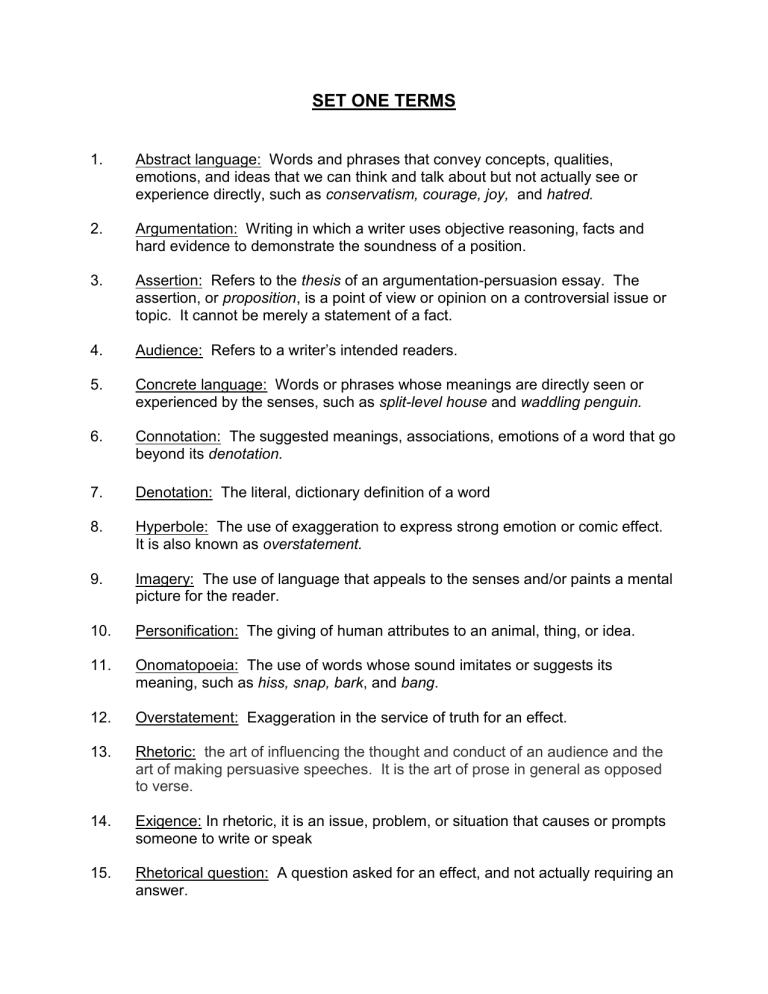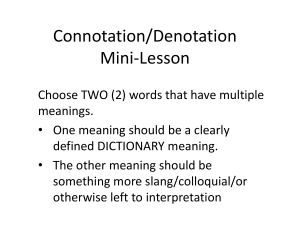
SET ONE TERMS 1. Abstract language: Words and phrases that convey concepts, qualities, emotions, and ideas that we can think and talk about but not actually see or experience directly, such as conservatism, courage, joy, and hatred. 2. Argumentation: Writing in which a writer uses objective reasoning, facts and hard evidence to demonstrate the soundness of a position. 3. Assertion: Refers to the thesis of an argumentation-persuasion essay. The assertion, or proposition, is a point of view or opinion on a controversial issue or topic. It cannot be merely a statement of a fact. 4. Audience: Refers to a writer’s intended readers. 5. Concrete language: Words or phrases whose meanings are directly seen or experienced by the senses, such as split-level house and waddling penguin. 6. Connotation: The suggested meanings, associations, emotions of a word that go beyond its denotation. 7. Denotation: The literal, dictionary definition of a word 8. Hyperbole: The use of exaggeration to express strong emotion or comic effect. It is also known as overstatement. 9. Imagery: The use of language that appeals to the senses and/or paints a mental picture for the reader. 10. Personification: The giving of human attributes to an animal, thing, or idea. 11. Onomatopoeia: The use of words whose sound imitates or suggests its meaning, such as hiss, snap, bark, and bang. 12. Overstatement: Exaggeration in the service of truth for an effect. 13. Rhetoric: the art of influencing the thought and conduct of an audience and the art of making persuasive speeches. It is the art of prose in general as opposed to verse. 14. Exigence: In rhetoric, it is an issue, problem, or situation that causes or prompts someone to write or speak 15. Rhetorical question: A question asked for an effect, and not actually requiring an answer.
